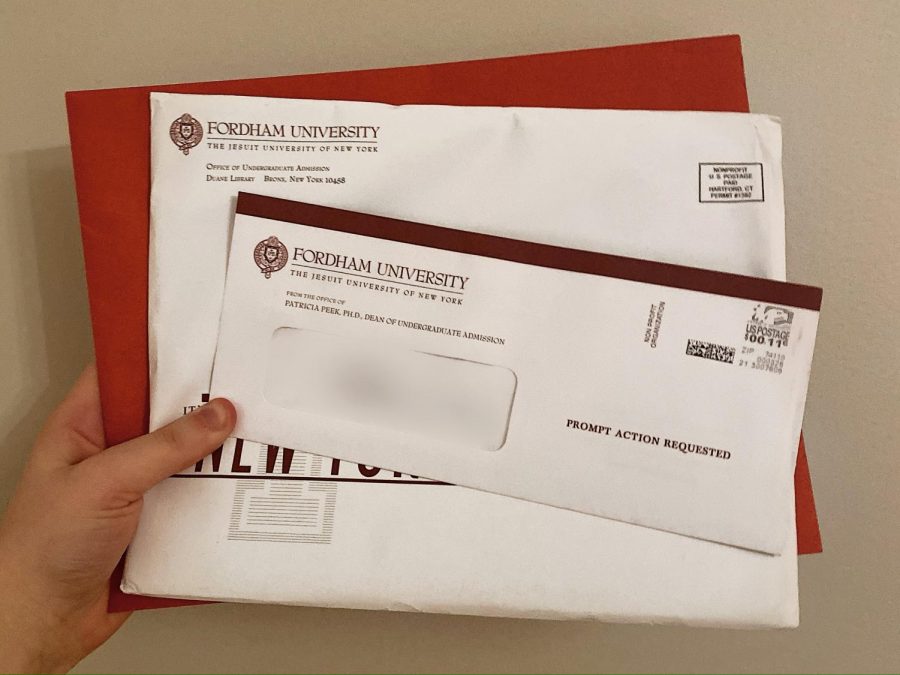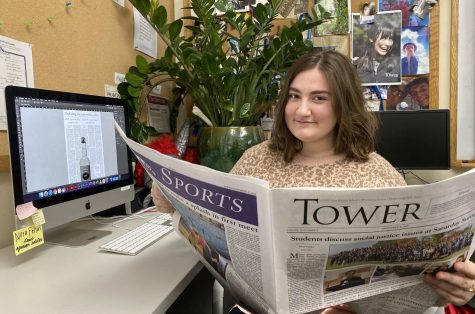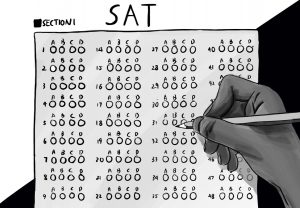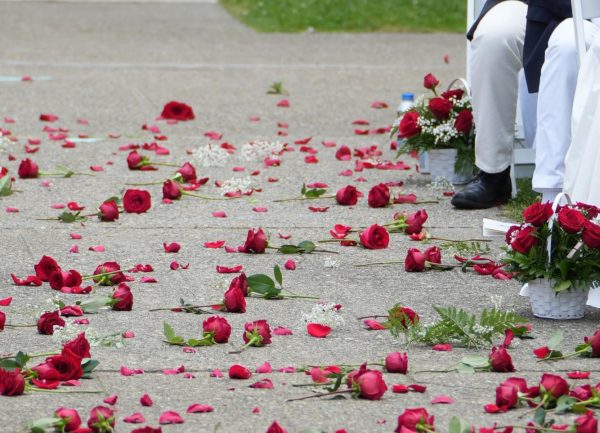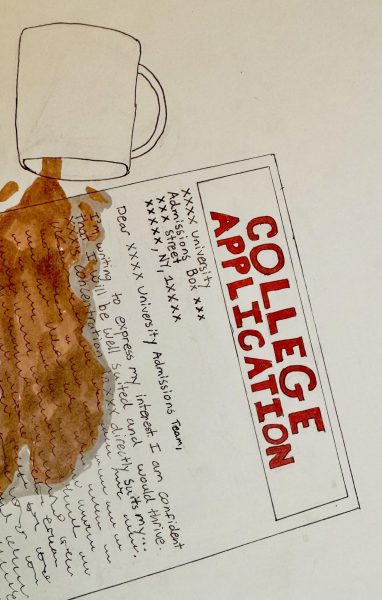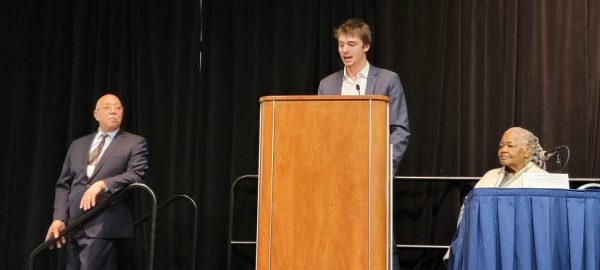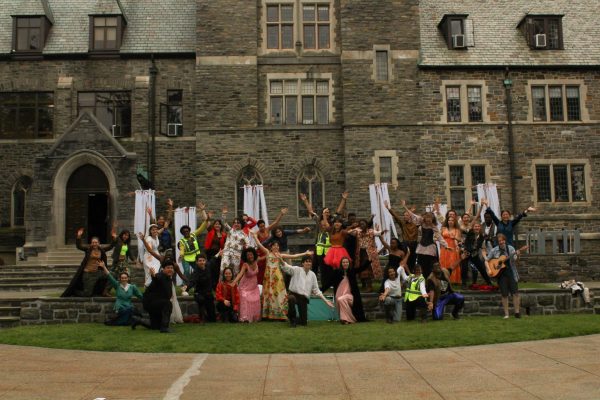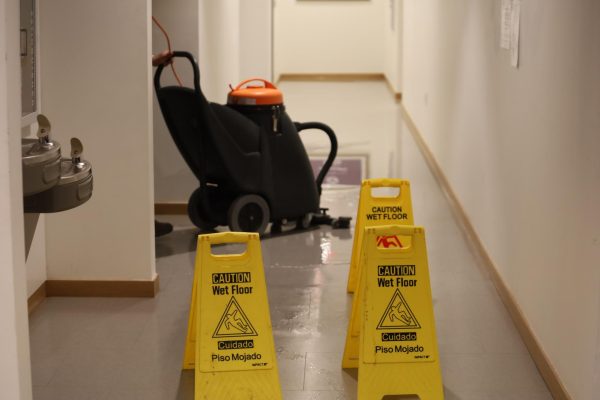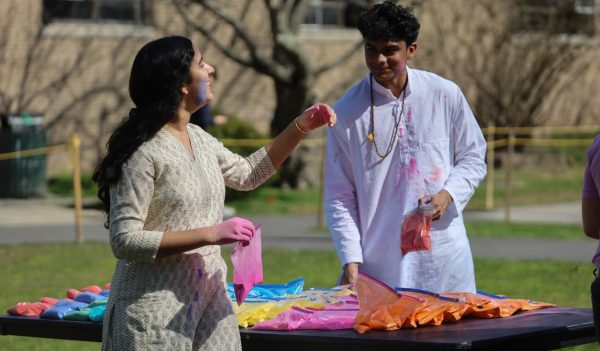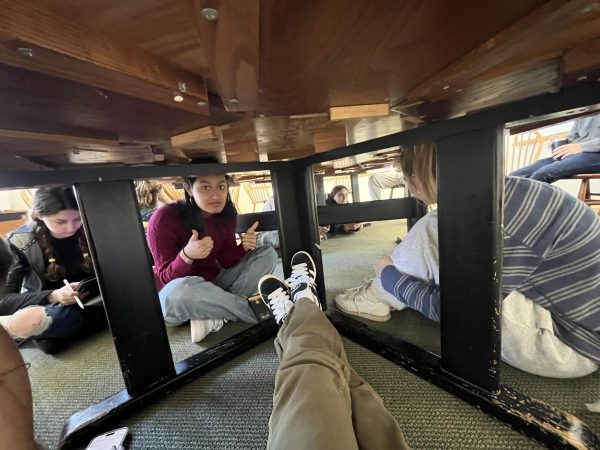Two sides of college counseling: the shadow world of private consultants
Masters seniors found out about their college early decisions this week and last week.
December 18, 2019
The niche business of private college consulting erupted into the American consciousness in last spring’s Operation Varsity Blues scandal, in which 50 wealthy parents and celebrities were arrested for bribing their children’s way into college. With many seniors hearing back from their Early Decision schools this week, college admissions is on their minds.
Unlike Rick Singer’s (the private consultant involved in Operation Varsity Blues) criminal scheme, most private college consulting businesses are legitimate, and it’s a business that is booming, with 26 percent of American college applicants having admitting to hiring a private consultant, entrepreneur.com said. Even at an institution like Masters, which has its own full-time college counseling team, some students engage private college consultants in addition to the counselor they are assigned through the school’s counseling office.
There are a number of reasons why students feel compelled to hire a private consultant. For one, many independent college consultants are former college admissions officers; a senior girl said she uses an outside counselor because she wants a “second opinion.”
For others, hiring outside college consultants is a “family thing.” A senior boy said that because his sibling used a college consultant, it made sense to do it again. Both students asked that their names be kept anonymous.
Adam Gimple, head of college counseling at Masters, said that parents and students use consultants because they offer “one-on-one” support. Elizabeth Levine, the founder of Signature College Counseling, concurred, saying that she offers “hand-holding.” She added, however, that private college consultants have greater resources than schools typically have. Levine oversees a team of five essay coaches (who provide feedback on all of her students’ supplements), interview preparation advisers and application specialists.
A Masters senior boy and girl both said that their external college counselors gave feedback on all of their supplements, something that many high school counselors are less able to do given their caseload. According to the Association of College Counselors in Independent Schools, in a survey of 430 independent schools, the national average senior-to-counselor ratio for independent schools is 46.5 to 1. At Masters it is slightly lower than the national average, at 42 to 1. According to edweek.org, the national average for public schools is over 100 seniors to each counselor.
Masters employs three college counselors – Adam Gimple, Karin Tucker, and Esperanza Borrero-Large – who guide students through their college process including helping them with Common Application essays and some supplements.
“On supplements, I got much more specific edits from my consultant,” said the senior girl.
Brian Taylor, managing director at Ivy Coach – a consulting company with a 92 percent acceptance rate for its students into one of their top three choice schools – said he helps students market themselves in a deeper way than a typical high school team has the resources to do.
“We help shape their extracurriculars so that they showcase a singular hook. We get them involved in the right activities and summer plans. We help them take the right coursework. More often than not, high schools get it wrong, in terms of coursework, testing, and specific schools,” he said.
Levine added that “colleges don’t accept students, they accept applications.” This is why consulting companies build a marketable “hook” or theme to their student’s applications.
In contrast, Gimple said he views the college process as more student-driven, and encourages his students to take initiative and market themselves.
The senior boy said that he thought his consultant was necessary for getting through his college process. He continued, “With high school college counselors, they have to look at admissions holistically, for the whole grade. With my outside person they can be completely honest about what is best for me,” he said.
Gimple responded. “Consultants will make recommendations that promote a student in a way that a high school wouldn’t do. If I have half a dozen students applying to the same college, it’s not ethical for me to promote one over the other five.”
The senior boy added that his private consultant is available daily over text and email, while he only meets with his in-school counselor once a month. While some students meet with their in-school counselor more frequently, they do not text and call them outside of school hours. Levine employs the “four or forgotten rule,” in which she promises to respond to her clients’ communications within four hours.
Taylor said the vast majority of his students would not have been able to get into the schools they did without the support of an external company.
Gimple added that, at Masters, the college counseling office goes beyond college admissions and serves as an emotional resource for students as they navigate this stressful process. All three of the counselors have a background in emotional counseling as well as admissions. In fact, Gimple said that when hiring a new counselor they specifically look for school counseling and social work background.
“If a student is feeling the emotional side effects associated with this process, we are equipped to help them navigate through it,” Gimple said.
Taylor takes a different approach. “High school counselors are great for helping students with suicide prevention or getting them into Hofstra University. But that’s very different from getting them into Princeton University,” Taylor said. Gimple countered, referencing Masters students that did get into Princeton without using private consultants.
Senior, Jack Horowitz, who will be attending Lafayette College next fall said he didn’t use a private consultant because he didn’t know they exist.
Gimple said that he wants parents to know that “if you’re paying tuition to Masters, you are getting all of the support you need navigating this process.” He added that because Masters is an institution, it has long-standing relationships with colleges and that he can pick up the phone and talk directly to an admissions officer, access that not all private consultants can promise. “I am the cultivator or protector of the relationship between Masters and universities,” Gimple said.
He added that the affluence needed for these consultants is great, because they cost between $5,000 and $50,000, or, in one specific student’s case, with Ivy Coach, 1.5 million dollars.
Senior, Madison Burton said that she didn’t use a private consultant because it would be too expensive.
“Obviously, it would be helpful, because I would get a difference of opinion and not a Masters-related opinion,” Burton said.
She added, however, “It also seems like a lot of extra work and money.”
In the case of Varsity Blues, what was starkly revealed to the public was not just the illegal activity but also the financial advantages of those availing themselves of these services. Gimple said, “If you ask people in the industry if they were surprised, people would say no. For years there has been an underlying reputation that consultants will blur the line ethically for those who are paying the big bucks.”
This piece was updated on 1-15-19.



